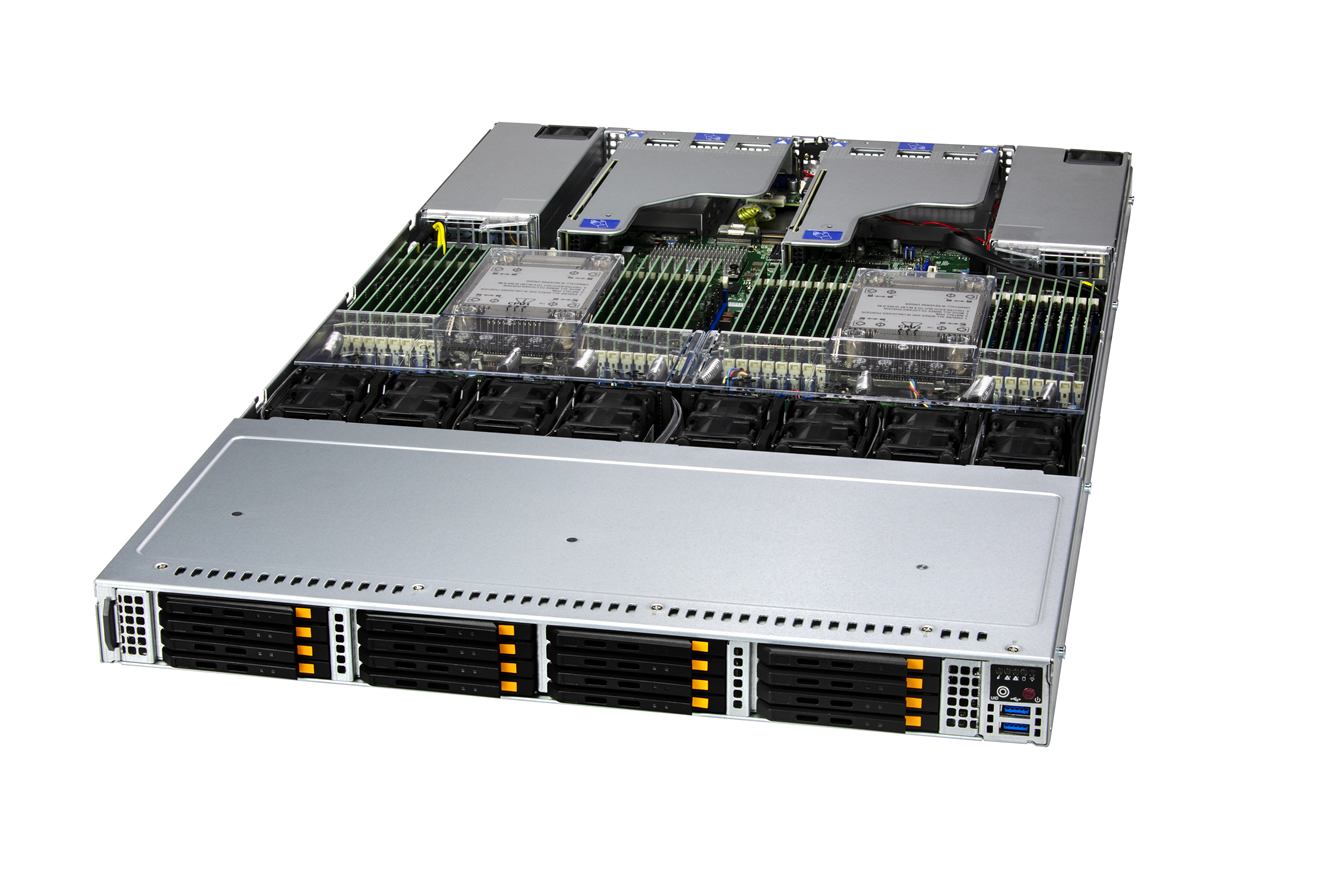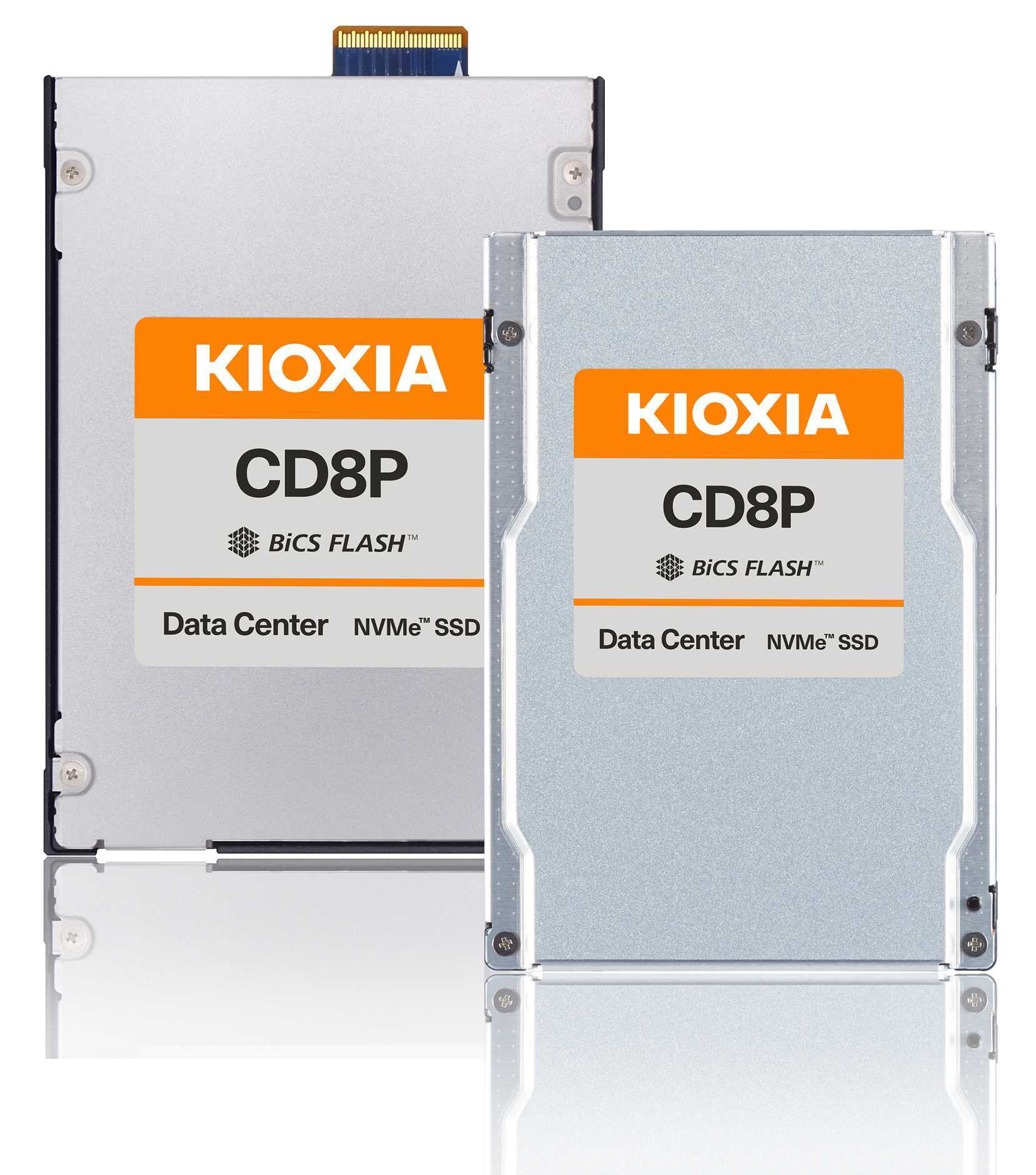Scalable Network Attached Solutions for Modern Infrastructure
Data Centres
Innovations in Data Center Power and Cooling Solutions
News
Scalable Network Attached Solutions for Modern Infrastructure
Sustainable Infrastructure: Building Resilient, Low-Carbon Projects
Centiel: Protecting power for hypercritical systems
By David Bond, Chairman, Centiel UK
Products are cheap for a reason. If you jumped out of an aircraft, would you want to be wearing a cheap parachute? Probably not!
The same logic applies to an uninterruptible power supply (UPS) protecting hypercritical systems. Selecting the solution which offers the highest level of availability and a low Total Cost of Ownership (TCO) is very important. However, finding the best way to protect critical power is a complex topic and one size doesn’t fit all. For this reason, Centiel’s expert team act as trusted advisors to data centres and facilities across the UK to ensure they always have the optimal UPS solution to reduce their TCO and maximise their uptime, whatever their requirement.
Centiel’s sales team are all engineers and UPS solutions experts and are not required to “sell” UPS. They are required to establish long term relationships with clients and consultants by offering their wealth of experience and expertise. They must take time to understand the challenges faced by the client and always provide the best advice in relation to solutions. If, for example, the best solution is “don’t change the current UPS”, then this is the advice given. Centiel wants its customers to be able to pick up the phone and discuss the best options available for them now and in the future, knowing they will always receive excellent advice and recommendations based on best practice.
It's this long-term vision and close relationships with Centiel’s clients which led to the development of their industry leading UPS solutions. For example, Centiel recently launched StratusPower, which shares all the benefits of the award-winning three phase, true modular UPS CumulusPower - including “9 nines” (99.9999999%) availability to effectively eliminate system downtime; class leading 97.6% on-line efficiency to minimise running costs; true “hot swap” modules to eliminate human error in operation – but now also includes long-life components to improve sustainability.
Centiel’s team have long been at the forefront of solving technology challenges. To develop the innovation that is StratusPower, Centiel listened to customers and understood their concerns about sustainability. For the past four years, its design team has been working to ensure their latest UPS is as sustainable as possible. Uniquely, StratusPower has a 30-year design life and is almost 100% recyclable, providing complete peace of mind in relation to power availability, while helping data centres to achieve net zero targets.
“StratusPower minimises TCO because of its class leading efficiency and low maintenance costs, it is fully scalable, so is unlikely be outgrown and it provides industry leading power availability. This is just one reason Centiel’s experienced team can now advise on the most appropriate options for organisations looking to improve their approach to sustainability and reduce their carbon footprint, as well as maintaining the highest level of availability for critical power protection."
To arrange a discussion about the best UPS to protect your organisation’s critical power or for more information visit Centiel's website.
Click here for more latest news.
Isha Jain - 13 September 2023
Data
News
Scalable Network Attached Solutions for Modern Infrastructure
Supermicro announces new E3.S all-flash storage solutions
Supermicro has announced that it is delivering a high throughput, low latency E3.S storage solutions, supporting the industry's first PCIe gen5 drives and CXL modules to meet the demands of large AI Training and HPC clusters, where massive amounts of unstructured data must be delivered to the GPUs and CPUs to achieve faster results.
Supermicro's petascale systems are a new class of storage servers supporting the latest industry standard E3.S (7.5mm) gen5 NVMe drives, from leading storage vendors for up to 256TB of high throughput, low latency storage in 1U or up to a half PB in 2U. Its innovative symmetrical architecture reduced latency by ensuring the shortest signal paths for data and maximised airflow over critical components, allowing them to run at optimal speeds. With these new systems, a standard rack can now hold over 20PB of capacity for high throughput NVMe-oF (NVMe over Fabrics) configurations, ensuring that GPUs remain saturated with data. Systems are available with either the 4th gen Intel Xeon Scalable processors or 4th gen AMD EPYC processors.
The systems also support up to 4xE3.S 2T (15 mm) CMM devices on Intel and AMD based platforms. These systems now enable memory cache coherency between CPU memory and PCIe attached DDR based memory devices. The new line-up of optimised storage systems includes 1U servers, supporting up to 16 hot-swap E3.S drives, or eight E3.S drives, plus four E3.S 2T 16.8mm bays for CMM and other emerging modular devices. The 2U servers support up to 32 hot-swap E3.S drives with both single-processor and dual-processor models. The dual-processor models support the latest 4th gen Intel Xeon Scalable processors, while the single-processor models support the latest 4th gen AMD EPYC processors.
Customers will experience increased performance with these latest technologies. These systems all include PCIe 5.0 (twice the performance of PCIe 4.0), 1.5X memory performance of DDR5 compared to DDR4, and up to 1PB in a compact 2U server when 30TB drives become available later this year.
Click here for latest data centre news.
Isha Jain - 14 August 2023
Data Centre Operations: Optimising Infrastructure for Performance and Reliability
Infrastructure Management for Modern Data Centres
News
News in Cloud Computing & Data Storage
Scalable Network Attached Solutions for Modern Infrastructure
DigiCert expands its certificate management platform
DigiCert has announced the expansion of its certificate management platform, DigiCert Trust Lifecycle Manager, to provide full lifecycle support for multiple CAs, including Microsoft CA and AWS Private CA, as well as integration with ServiceNow, to support existing IT service workflows.
The platform additionally supports enrolment to a broad range of Microsoft and AWS technologies, providing organisations a unified approach to managing public and private trust for use cases such as biometric authentication, device authentication, WiFi/VPN provisioning, cloud workloads and infrastructure management.
“DigiCert customers place high priority on ensuring continuity of security across diverse IT infrastructure, as data and processes cut across clouds and environments,” says DigiCert’s Chief Product Officer, Deepika Chauhan. “Trust Lifecycle Manager provides organisations a centralised way to secure users, servers and devices across all these environments.”
With support for Microsoft CA and AWS Private CA, it enables discovery, issuance, automation and revocation, including the ability to tag, filter and apply policy to imported and discovered third-party digital certificates. Certificates can be enrolled to a broad set of technologies through ACME, SCEP, EST and other enrolment methods. Its native integration reduces the effort and expertise needed to extend the value of internal CAs, with embedded, pre-built capability that accelerates time to value and eliminates human error.
Additional Microsoft technologies supported with native integration include:
Active Directory, for autoenrollment of certificates and zero-touch provisioning using DigiCert Autoenrollment Server
Windows Hello for Business, for support for certificate-mediated biometric authentication
Microsoft Intune, for management of certificates provisioned to end-entity devices
Azure Cloud Services, for deployment of DigiCert ONE solutions on Azure cloud infrastructure
Additional AWS technologies supported with native integration include:
Amazon Elastic Load Balancer, for governing certificate-mediated authentication to multiple targets
Amazon Cloudfront, for securing CDN-networked domains
Click here for latest data centre news.
Isha Jain - 9 August 2023
Data Centres
Enterprise Network Infrastructure: Design, Performance & Security
News
Scalable Network Attached Solutions for Modern Infrastructure
Western Digital's new storage solutions for data centre architecture
From the cloud, to the edge, to the enterprise, data centre architects are deploying higher levels of flash to unlock the potential of AI, object storage, file sharing and more. At the same time, they are laser focused on controlling spend and must find solutions to help them manage, scale and utilise storage assets more efficiently.
This is driving a growing trend to disaggregate and share NVMe flash over fabric (NVMe-oF) for improved performance, availability and flexibility of storage resources. Helping customers simplify NVMe/NVMe-oF storage deployment, Western Digital has announced new solutions:
Enhanced OpenFlex Data24 3200 NVMe-oF JBOF/Storage Platform
Next generation RapidFlex A2000 and C2000 NVMe-oF fabric bridge devices (FBDs
New Ultrastar DC SN655 PCIe Gen 4.0 dual-port NVMe SSD
These new storage solutions are enabling an ecosystem, providing more flexibility and choice for simplifying solutions deployment for customers. It has vertical integration capabilities targeting both ends of the ethernet wire to deliver solutions, where data travels from the server initiator to the storage target.
Fully integrated OpenFlex Data24 3200 NVMe-oF Storage Platform
The platform extends the performance of NVMe flash to a shared storage architecture. By separating storage resources from compute, and sharing it over ethernet, OpenFlex Data24 becomes widely available to multiple applications and servers, allowing for greater resource control and scalability, leading to improved storage utilisation without overprovisioning.
Using RapidFlex FBDs, the Data24 3200 allows up to six hosts to be attached without a switch. A switched environment allows scaling even more hosts and Data24 platforms, providing scale-out or scale-up capabilities from hundreds of terabytes to petabytes of its flash with very low application latency. In addition to RDMA over converged Ethernet (RoCE), it now features new TCP connection support. Available in a 2U 24-bay platform and backed with a five-year limited warranty, it is built to deliver low power, high availability and enterprise-class reliability with up to 368TB in a single platform of low latency dual-port PCIe Gen 4.0 SSDs.
Next generation RapidFlex FBDs: the A2000 ASIC and the C2000 fabric bridge PCIe adapter card
The RapidFlex family of NVMe over fabric bridge devices provide the foundational building blocks for OEMs/ODMs and large organisations taking a DIY approach to their software-defined infrastructure to enable next generation workloads based on highly scalable shared storage across an ethernet fabric. These second generation low-power, high-performance FBDs come in two versions: the RapidFlex A2000 controller, and the RapidFlex C2000 that places the A2000 chip on a PCI adapter for powering solutions.
The new FBD is a unique state machine that exports the PCI bus over ethernet, allowing externally connected SSDs to appear as if they were local to the server. The new family also doubles performance with an additional 100GbE port matched to 16 lanes of PCIe Gen 4.0, and provides a PCIe root complex within all NVMe all-flash arrays, making it easy to qualify and deploy. The new FBDs add initiator mode capability to the existing target mode capability, so customers can now deploy more cost-effective and lower power initiator cards in their servers instead of a conventional ethernet NIC for NVMe-oF connectivity.
Enterprise-class Ultrastar DC SN655 Dual-Port NVMe SSD
This is a cost-effective, dual port, high capacity PCIe Gen 4.0 NVMe SSD designed for cloud, OEM and enterprise customers who need high-performance, high capacity storage for a variety of applications and workloads such as disaggregated storage, object storage, storage servers and other mission-critical applications.
The Ultrastar DC SN655 is a vertically integrated SSD that provides a simple, scalable, single-port or dual-port path to ensure continuous data access for enterprise high availability requirements. It also expands capacities from new 3.84TB to 15.36TB, targeting both storage and mixed workload compute applications, and increases drive reliability to 2.5 million hours mean time between failures (projected). Additionally, it reaches more than one million maximum random read IOPs and enhanced Qos for large unstructured workloads. It comes in a drop-in U.3 15mm form factor and is U.2 backwards compatible. It also offers additional enterprise features like power-fail protection and end-to-end data path protection to ensure data is available when needed.
Click here for latest data centre news.
Isha Jain - 9 August 2023
Data Centres
News
Scalable Network Attached Solutions for Modern Infrastructure
KIOXIA introduces new data centre class SSDs
KIOXIA has announced the addition of the KIOXIA CD8P Series to its line-up of data centre class solid state drives (SSDs).
The new series is well-suited to general purpose server and cloud environments that can take advantage of PCIe 5.0 (32GT/s x4) performance. Data centre applications can generate complex mixed workloads spread across large-scale virtualised systems in 24x7 operational data centres. The new drives are available in capacities up to 30.72TB and in both EDSFF E3.S and 2.5inch (U.2) form factors.
Optimised for performance, latency, reduced power and thermal requirements for data centre environments, where power and cooling efficiency is critical, the new series provides the predictability and consistency needed for a seamless user experience.
The KIOXIA CD8P Series realises approximately a 60% to 80% increase in sequential read performance, when compared to previous generation PCIe 4.0 SSDs, including:
Random read performance up to 2,000K IOPS and random write performance up to 400K IOPS.
Low and consistent 99.999th percentile latency of under 250us in standard random read workloads, and under 1.8ms in standard OLTP-style mixed workloads.
Single-port design, optimised for data centre class workloads.
The new data centre drives are based on the KIOXIA BiCS FLASH fifth generation, three-dimensional flash memory TLC technology, and utilise an inhouse developed controller. Its SSDs are compliant with PCIe 5.0 and NVMe 2.0 specifications, as well as the NVMe Express Management Interface (NVMe-MI) v1.1d, and support OCP data centre NVMe SSD specifications (not all requirements).
Additional features and benefits include:
Full data reliability with end-to-end data protection, power loss protection and flash die failure recovery.
Security options: Non-SED, SIE and SED (TCG Opal and Ruby SSCs).
Click here for latest data centre news.
Isha Jain - 8 August 2023
Artificial Intelligence in Data Centre Operations
Cyber Security Insights for Resilient Digital Defence
Data
Data Centre Operations: Optimising Infrastructure for Performance and Reliability
Data Centre Regulations & UK Compliance Updates
Data Centre Security: Protecting Infrastructure from Physical and Cyber Threats
Events
Scalable Network Attached Solutions for Modern Infrastructure
Global Cyber Summit highlights Ukrainian experience amid geopolitical tensions
Nineteen Group, organiser of International Cyber Expo, has announced its programme for the annual Global Cyber Summit, sponsored by Sonatype, Opentext and Infoblox, and hosted at Olympia London on 26 and 27 September 2023. The summit returns with greater international appeal. Among other topics of discussion, guest speakers will provide the Ukrainian perspective on cyber security, in light of recent geopolitical events.
With opening remarks by Professor Ciaran Martin CB, Chair of International Cyber Expo’s Advisory Council, the Global Cyber Summit assembles the industry’s great minds to review ongoing cyber threats, priorities and challenges. Uniquely, the programme this year invites advisors closely associated with Ukrainian government agencies to present their invaluable insight into the reality and impact of Russian cyber attacks on the country and beyond.
Special guest speakers include, Oksana Kharchenko, a member of YouControl, who will delve into the challenges of managing sanctions risk in the current geopolitical setting; and Andrew Hural, Director, MDR of UnderDefense, who will reflect on the last 500 days of Russian cyber operations, determining the successes and failures of their espionage.
Here are a few agenda highlights:
Nicola Whiting MBE, co-owner of Titania Group, will reveal why diversity and inclusion efforts might be stalling and provide a new framework.
Theresa Deumchen, Tech Policy Associate at Global Counsel, will examine the regulatory landscape concerning generative AI.
Alexsander Gorkowienko, SecurityLabs’ Senior Managing Consultant at Spirent Communications, will explain how EU security regulations, such as the NIS 2 Directive, might affect businesses across the region.
Jake Moore, Global Cyber Security Advisor at ESET, will shed light on his attempt to manipulate recruitment staff, land a job inside a company and gain full access to their data.
Stewart Bertram, Head of Cyber Threat Intelligence at Elemendar, will utilise a mix of case studies and theories to expose the crossover between misinformation and cyber threat operations.
Rashik Parmar, Group CEO of BCS, The Chartered Institute for IT, and Dr Saritha Arunkumar, IBM Public Cloud Worldwide Technical Leader - Security, will sit together on a panel to address the question: What does the rise of AI and quantum computing mean for the future of cyber security?
Charlotte Hooper, Helpline Manager at The Cyber Helpline, will highlight the impact of cybercrime on individuals and what can be done to support them.
Attendees can also take advantage of scheduled talks at the collocated International Security Expo. In fact, Joel Aleburu at Microsoft, will be speaking here about the role of cyber espionage in terrorist activities on the first day of the event, while Joe Wrieden, Intelligence Analyst at Cyjax, will assess the key role of Advanced Persistent Threats(APTs) in serious and organised crime on the second day.
All sessions are CPD Certified.
To register for free as a visitor: https://ice-2023.reg.buzz/dcnnAs press: https://www.internationalcyberexpo.com/press-pass-registration
Click here for latest data centre news.
Isha Jain - 1 August 2023
News
Scalable Network Attached Solutions for Modern Infrastructure
Recent study shows women’s leading role in new IT patents
SuperWomen in Flash has shared figures from a recent study by the National Center for Women & Information Technology (NCWIT), a non-profit community founded in 2004 which is funded by the National Science Foundation. SuperWomen in Flash is the Flash Memory Summit (FMS) program that celebrates the success of women in the memory industry and encourages more young women to join this dynamic field.
NCWIT, in partnership with 1790 Analytics, has published periodic reports on gendered patterns in IT patenting, analysing records from the US Patent and Trademark Office. Below are a few highlights:
In the last five years, approximately 10% of US IT patents included women as inventors.
In the US, IT patenting overall increased almost 17-fold between 1980-84 and 2016-2020.
Patents with woman inventors increased 56-fold from 1980-84 to 2017-2020, even as the percentage of women employed in IT either remained flat or decreased slightly.
In addition:
In 2022, 27% of professional computing occupations in the US workforce were held by women.
In 2022, 23% of total tech C-suite positions in Fortune 500 companies were held by women.
Starting in 2018, FMS has presented a SuperWomen in Flash Leadership Award to showcase the achievements of women in the traditionally male-dominated memory industry. Past recipients include:
Amber Huffman, Former Intel Fellow and Board Chair of the NVMe Working Group
Calline Sanchez, IBM Vice President, WW Systems Services & Technical Universities
Barbara Nelson, WekaIO, VP Cloud
Dr Yan Li, Western Digital, VP of Engineering
“The data infrastructure memory industry, and tech overall, is a highly dynamic space, one where creativity, attention to detail, and an innovative approach can make a significant difference to the development and adoption of new technologies,” says Camberley Bates, VP and Practice Lead, The Futurum Group, and Founder of the SuperWomen in Flash Leadership program. “It’s an ideal space for women to build rewarding and successful careers, and through SuperWomen in Flash, we aim to attract more women to the memory industry.”
Click here for latest data centre news.
Isha Jain - 28 July 2023
Cooling
Data
Data Centres
Scalable Network Attached Solutions for Modern Infrastructure
Uncategorised
Paying attention to data centre storage cooling
Authored by Neil Edmunds, Director of Innovation, Iceotope
With constant streams of data emerging from the IoT, video, AI and more, it is no surprise we are expected to generate 463EB of data each day by 2025. How we access and interact with data is constantly changing and is going to have a real impact on the processing and storage of that data. In just a few years, it's predicted that global data storage will exceed 200ZB with half of that stored in the cloud.
This presents a unique challenge for hyperscale data centres and their storage infrastructure. According to Seagate, cloud data centres choose mass capacity hard disk drives (HDDs) to store 90% of their exabytes. HDDs are tried and tested technology, typically found in a 3.5in form factor. They continue to offer data centre operators cost effective storage at scale. The current top-of-the-range HDD features 20TB capacity. By the end of the decade that is expected to reach 120TB+, all within the existing 3.5in form factor.
The practical implications of this show a need for improved thermal cooling solutions. More data storage means more spinning of the disks, higher speed motors, more actuators – all of which translates to more power being used. As disks go up in power, so does the amount of heat produced by them. Next, with the introduction of helium into the hard drives in the last decade, performance has not only improved, thanks to less drag on the disks, but the units are now sealed.
There is also ESG compliance to consider. With data centres consuming 1% of global electricity demand and cooling power accounting for more than 35% of a data centre’s total energy consumption, pressure is on data centre owners to reduce this consumption.
Comparison of cooling technologies
Traditionally, data centre environments use air cooling technology. The primary way of removing heat with air cooling methods is by pulling increasing volumes of airflow through the chassis of the equipment. Typically, there is a hot aisle behind the racks and a cold aisle configuration in front of the racks which dissipates the heat by exchanging warm air with cooler air. Air cooling is widely deployed and well understood. It is also well engrained into nearly every data centre around the world. However, as the volume of data evolves, it is becoming increasingly likely that air cooling will no longer be able to ensure an appropriate operating environment for energy dense IT equipment.
Technologies like liquid cooling are proving to be a much more efficient way to remove heat from IT equipment. Precision liquid cooling, for example, circulates small volumes of dielectric fluid across the surface of the server, removing almost 100% of the heat generated by the electronic components. There are no performance throttling hotspots and no front to back air cooling, or bottom to top immersion constraints which are present in tank solutions. While initial applications of precision liquid cooling have been in a sealed chassis for cooling server components, given the increased power demands of HDD, storage devices are also an ideal application.
High density storage demands
With high density HDD, traditional air cooling pulls air through the system from front to back. What typically occurs in this environment is that disks in the front become much cooler than those in the back. As the cold air comes and travels through the JBOD device, the air gets hotter. This can result in a 20°C or more temperature differential between the discs at the front and back of the unit depending on the capacity of the hard drive.
For any data centre operator, consistency is key. When disks are varying by nearly 20°C from front to back, there is inconsistent wear and tear on the drives leading to unpredictable failure. The same goes for variance across the height of the rack, as lower devices tend to consume the cooler air flow coming up from the floor tiles.
Liquid cooling for storage
While there will always be variances and different tolerances taking place within any data centre environment, liquid cooling can mitigate for these variances and improve consistency. In 2022, Meta published a study showcasing how an air cooled, high density storage system was reengineered to utilise single phase liquid cooling. The study found that precision liquid cooling was a more efficient means of cooling the HDD racks with the following results:
The variance in temperature of all HDDs was just 3°C, regardless of location inside the JBODs.
HDD systems could operate reliably in rack water inlet temperatures up to 40°C.
System-level cooling power was less than 5% of the total power consumption.
Mitigating acoustic vibrational issues.
While consistency is a key benefit, cooling all disks at a higher water temperature is important too. This means data centre operators do not need to provide chilled water to the unit. Reduced resource consumption – electrical, water, space, audible noise – all lead to greater reduction in TCO and improved ESG compliance. Both of which are key benefits for today’s data centre operators.
As demand for data storage continues to escalate, so will the solutions needed by hyperscale data centre providers to efficiently cool the equipment. Liquid cooling for high density storage is proving to be a viable alternative as it cools the drives at a more consistent temperature and removes vibration from fans, with lower overall end-to-end power consumption and improved ESG compliance. At a time when data centre operators are under increasing pressure to reduce energy consumption and improve sustainability metrics, this technology may not only be good for the planet, but also good for business.
Enabling innovation in storage systems
Today’s HDDs are designed with forced air cooling in mind, so it stands to reason that air cooling will continue to play a role in the short term. For storage manufacturers to embrace new alternatives demonstrations of liquid cooling technology, like the one Meta conducted, are key to ensuring adoption. Looking at technology trends moving forward, constantly increasing fan power on a rack will not be a long term sustainable solution.
Data halls are not getting any larger and costs to cool a rack are increasing. The need for more data storage capacity at greater density is exponentially growing. Storage designed for precision liquid cooling will be smaller, use fewer precious materials and components, perform faster and fail less often. The ability to deliver a more cost effective HDD storage solution in the same cubic footprint, delivers not only a TCO benefit but contributes to greater ESG value as well. Making today's technology more efficient and removing limiting factors for new and game changing data storage methods can help us meet the global challenges we face and is a step forward towards enabling a better future.
Click here for more thought leadership.
Isha Jain - 25 July 2023
Data Centre Operations: Optimising Infrastructure for Performance and Reliability
Enterprise Network Infrastructure: Design, Performance & Security
News in Cloud Computing & Data Storage
Scalable Network Attached Solutions for Modern Infrastructure
Infinidat named finalist for Tech Innovator Awards
Infinidat has announced that CRN, a brand of The Channel Company, has named Infinidat as a finalist for the 2023 CRN Tech Innovator Awards. It is being recognised for its InfiniBox solution in the ‘Storage−Enterprise’ category.
The InfiniBox solutions portfolio offers two major choices: the InfiniBox SSA II solid-state storage array and the InfiniBox hybrid storage array.
For enterprises that require consistent sub-millisecond latency for every I/O, it provides the InfiniBox SSA II, which is the industry’s fastest all-flash storage array with latency as low as 35 microseconds, driving unsurpassed real world application performance. The InfiniBox hybrid system combines DRAM, flash caching layers, and high capacity, cost effective HDDs, optimised by its patented Neural Cache technology. The use of HDDs dramatically lowers the cost of storage, while delivering 100% guaranteed availability, powerful cyber storage resilience and ease of use with its autonomous automation.
“With its cyber storage capabilities, InfiniBox is one of the most exciting enterprise storage solutions on the market today, addressing one of the critical concerns of Fortune 500 CEOs − cyber security. Congratulations to Infinidat for repeatedly receiving industry awards for their technological innovation and the business value they bring to our enterprise customers. As a trusted partner, Infinidat continues to provide a powerful storage solution for enterprises who need to get the most out of their storage investment,” says Bob Elliott, Vice President, Storage at Mainline Information Systems.
This annual award program showcases innovative vendors in the IT channel across 37 different technology categories, in key areas ranging from cloud to storage to networking to security. To determine the 2023 winners, a panel of CRN editors reviewed hundreds of vendor entries − including solution provider testimonials − using multiple criteria, including key capabilities, uniqueness, technological ingenuity and ability to address customer and partner needs.
The Tech Innovator Awards will be featured in the August issue of CRN and can be viewed online at crn.com/techinnovators.
Isha Jain - 21 July 2023
Data
Data Centre Operations: Optimising Infrastructure for Performance and Reliability
Enterprise Network Infrastructure: Design, Performance & Security
News
News in Cloud Computing & Data Storage
Scalable Network Attached Solutions for Modern Infrastructure
Aruba launches unlimited storage services
As the digital world grows at an increasing pace, more and more space is needed to store one’s data. For this reason, the web is teeming with articles offering useful tips for saving space, emptying one's inbox of excessively heavy content and tricks on how to free up precious GBs of memory. As of today, one less thought will be required.
Aruba has announced the availability of the new unlimited email storage service which will ensure that owners of Aruba email account will no longer have to worry about freeing up space or increasing the capacity of their account, as they will be able to store all their emails with unlimited storage.
The company provides its users with a definitive solution to a need that is destined to grow over time. As well as enabling unlimited email storage, it has also made the Aruba Drive application available, which offers an unlimited cloud space where users can store their files, protect them and ensure easy access and sharing capabilities. With the drive, it is possible to store and share numerous types of files, relying not only on unlimited space, but also on a proprietary space relating to one’s own domain name. Once an account has been created and files have been uploaded to the online space, users can view them, share them with whoever they wish and edit them using various tools. It is integrated for working on text documents, spreadsheets and presentations, or for retouching photos and organising photos and videos in albums.
SpazioMail Unlimited and Aruba Drive add to the offer of unlimited web space and traffic already present in the Aruba hosting offer, effectively creating an ecosystem of services that revolves around a wide range of quality hosting solutions.
Details about unlimited email storage
The service costs €14.99 + VAT/year. Until 2 August 2023, users can register or transfer a domain with email by purchasing unlimited email storage for only €1.99 + VAT for the first year, upon renewal from €30.48 + VAT.
Aruba Drive is available in three different plans:
Aruba Drive Easy- for storing and digitising files with no space limits and easy access. Includes a user account, unlimited space, domain registration and five email accounts. Costs from €50.00 + VAT/year.
Aruba Drive Advanced- provides a storage space that is synchronised with desktop and mobile applications and integrated with working tools to optimise efficiency in daily activities. Includes a user account, unlimited space, domain registration and five email accounts, integrated tools and synchronisation with apps. Costs from €100.00 + VAT/year.
Aruba Drive Professional- the most comprehensive solution, ideal for team and company work. Includes ten usernames, unlimited space, domain registration and five email accounts, integrated tools and synchronisation with apps. Costs from €300.00 + VAT/year.
In addition, a promotion is available until 20 December 2023 with a 50% discount for the first year on all plans.
Click here for more on Aruba.
Isha Jain - 20 July 2023

Head office & Accounts:
Suite 14, 6-8 Revenge Road, Lordswood
Kent ME5 8UD
T: +44 (0)1634 673163
F: +44 (0)1634 673173









